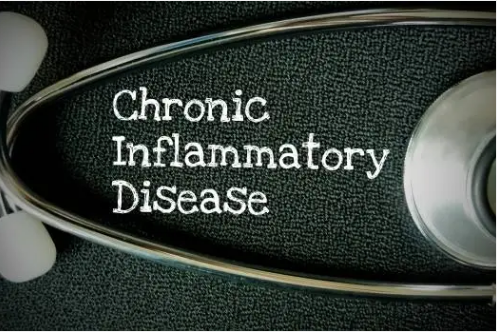Exploring Alternative Medicine & Holistic Healing – Complete Guide to Natural Wellness
Discover the principles, benefits, and practices of alternative medicine and holistic healing. Learn about acupuncture, herbal remedies, homeopathy, and more to achieve balanced wellness.

🌱 Introduction: A New Era of Wellness
In a world where the pursuit of health and wellness grows increasingly complex, alternative medicine and holistic healing are gaining remarkable attention. These approaches offer more than just remedies — they invite us to view health as a dynamic balance of body, mind, and spirit.
This comprehensive guide explores their principles, benefits, and considerations, empowering you to make informed decisions about your wellness journey.
🌿 What Is Alternative Medicine?
Alternative medicine refers to a wide spectrum of healing philosophies, therapies, and practices that fall outside the realm of conventional Western medicine. Many individuals turn to these treatments not just as alternatives but as complements to standard care, seeking a more personalized and integrative approach to health.
Unlike conventional medicine — which often focuses on managing symptoms — alternative approaches aim to support the body’s natural healing processes, enhance overall well-being, and prevent illness before it occurs.
📖 For a deeper overview, visit the National Center for Complementary and Integrative Health (NCCIH).
🌼 Major Types of Alternative Medicine
Here are some of the most widely practiced and researched alternative medicine approaches:
🪡 1. Acupuncture
Rooted in Traditional Chinese Medicine (TCM), acupuncture involves the insertion of thin needles into specific points on the body to balance the flow of qi (energy). Research shows it can help with pain management, stress reduction, and various chronic conditions.
📚 Read more from Mayo Clinic – Acupuncture Overview.
🧪 2. Homeopathy
Homeopathy uses highly diluted natural substances to trigger the body’s innate healing response. While it remains debated in scientific circles, many report relief from allergies, migraines, and skin conditions.
🔎 Learn more at the Homeopathy Research Institute.
🌿 3. Herbal Medicine
Herbalism is one of humanity’s oldest healing traditions, using plant-based remedies to support health and treat disease. Popular herbs like echinacea and turmeric are renowned for their immune-boosting and anti-inflammatory properties.
🌱 Explore the Herbal Medicine Guide – Mount Sinai.
🌞 4. Naturopathy
Naturopathy emphasizes the body’s natural ability to heal itself through nutrition, lifestyle changes, herbal remedies, and stress management. Naturopathic doctors often integrate traditional methods with modern science.
📘 Learn more at the American Association of Naturopathic Physicians.
🧘♂️ The Core Principles of Holistic Healing
Holistic healing takes a broader view of health — recognizing the deep connection between the mind, body, and spirit. Instead of treating only the symptoms, holistic approaches strive to address root causes and promote lasting wellness.
Key principles include:
-
Individualization: Every person is unique, and treatments are tailored to individual needs and circumstances.
-
Mind-Body Connection: Mental and emotional health are integral to physical health. Practices like meditation and mindfulness strengthen this link.
-
Wellness Focus: Emphasis on promoting overall health, not just treating illness.
-
Preventive Approach: Lifestyle changes, education, and self-care are prioritized to prevent disease and maintain long-term wellness.
For more insights, read Cleveland Clinic – Holistic Medicine.
🌻 Benefits of Alternative Medicine and Holistic Healing
The appeal of alternative medicine and holistic healing extends beyond dissatisfaction with conventional treatments. Many choose these paths to achieve a deeper, more balanced state of wellness.

Some notable benefits include:
-
Personalized Care: Treatments are tailored to your body, lifestyle, and health goals.
-
Integrated Health Approach: Addresses physical, emotional, and spiritual health for long-lasting results.
-
Empowerment: Encourages patients to actively participate in their healing journey.
-
Complementary Support: Enhances the effectiveness of conventional medicine and reduces side effects.
📊 Evidence supports these benefits — for example, a 2023 review in Frontiers in Medicine highlights how integrative therapies improve quality of life for chronic illness patients.
⚠️ Important Considerations Before Exploring Alternative Therapies
While these approaches offer many benefits, caution and awareness are crucial when incorporating alternative therapies into your health plan:
-
Consult Your Healthcare Provider: Always discuss new treatments with your doctor, especially if you’re on medications or receiving conventional care.
-
Verify Practitioner Credentials: Choose certified, reputable practitioners to ensure safety and effectiveness.
-
Be Aware of Interactions: Some herbal remedies or supplements can interact with prescription medications — avoid self-prescribing.
For tips on selecting the right practitioner, see NCCIH – Choosing a Practitioner.
🌟 Conclusion: Embracing a Balanced Approach to Health
Exploring alternative medicine and holistic healing opens up a world of possibilities for those seeking a comprehensive, natural approach to wellness. By integrating traditional wisdom with modern science, you can harness the best of both worlds — creating a path to resilience, vitality, and long-term balance.
However, the key is to proceed with informed caution and professional guidance. With the right approach, alternative medicine can become a powerful ally on your journey toward lifelong health and harmony.

